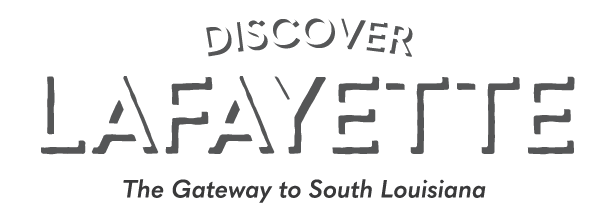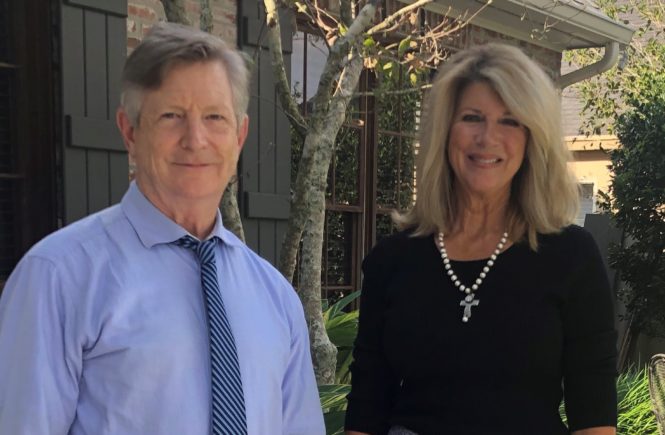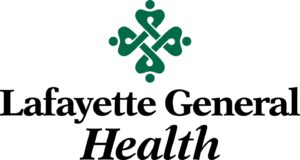Podcast: Play in new window | Download (Duration: 58:33 — 53.6MB)
Dr. Pearson Cross, seasoned political analyst, joined Discover Lafayette to discuss the political climate in this 2020 election cycle. Early voting will run through Oct. 27, 2020, preceding the November 3rd election, and it seemed a good time to have Dr. Cross join us and discuss the political landscape here and across the region.
Dr. Cross is a respected professor on UL – Lafayette’s campus as well as our community, serving as Interim Head of the Department of Political Science, Associate Dean of the College of Liberal Arts, and an Associate Professor in the Department of Political Science.
He is host of a weekly radio show, Bayou to Beltway on KRVS (88.7 FM), that focuses on politics and policy, and is a frequent commentator on political issues for news media at the national, state and local levels.
As a young man, Cross always wanted to be a musician and actually dropped out of college and played rock and jazz for about ten years, traveling across the Western U. S. But a “sit down” gig in Palo Alto allowed him the opportunity to stay in one place to make a living and he realized he needed to do something different, to go back to school.
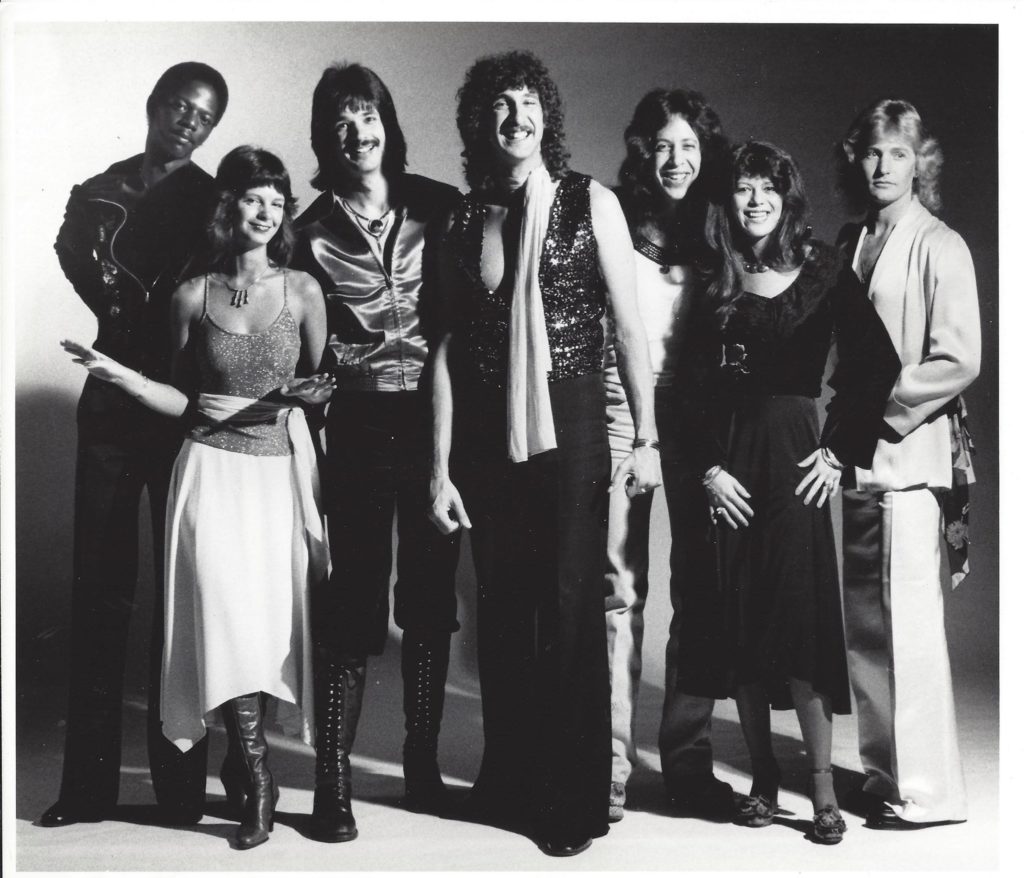
A political science class spurred his interest in the subject. A teacher/mentor encouraged him to earn a PhD and pursue a career in teaching, a vocation which mirrored that of his parents and one he never dreamed he would follow. After a stint at UL – Monroe, Dr. Cross ended up in South Louisiana at UL – Lafayette where he is raising his family and has become a part of the political landscape.
COVID has turned the 2020 election cycle upside down with its resulting need to social distance and limit large gatherings. Cross reminisced about the days of “retail politics” in which politicians such as Edwin Edwards would work six or seven events a day as a way to meet constituents, march in parades, kiss babies, and raise funds; those days are “pretty much done” and social media has become more and more important.
Today, the “Matthew Principle” rules: “To those who have, get. To those who are given, more is given,” says Cross. If a candidate already has a reputation and a fundraising operation, they can raise funds. But newcomers are at a great disadvantage. There is less door to door interactions. Incumbents are at a great advantage and can get by with much less advertising.
Dr. Cross anticipates a great surge in mail in/early voting and at the time of our interview, 15 million people in the U. S. had cast ballots early. On the day of this posting, October 23, 2020, at least 51 million people have already voted in advance of the November 3rd election, which number represents over a third of all votes cast in the 2016 presidential election. In some states everyone is allowed to vote by mail; in Louisiana, there are a limited number of reasons that allow mail-in ballots such as having had COVID, being over 65 years of age, or having a recognized disability. Cross stressed that while many conservatives believe that mail-in balloting leads to broad and pervasive fraud, there have been no findings to that effect although there are occasional findings of illegality or altered ballots.
Cross predicts that the national election results will be determined the night of November 3rd as Joe Biden appears headed to a solid victory. At the time of this interview, Biden had a commanding lead in the polls yet in the aftermath of the October 22nd debate, numbers are shifting slightly with Biden slipping among Independents. Swing states such as Florida, Michigan, and Texas will once again hold the key to victory for the successful candidate.
National political news has crowded out state and local politics which can seem parochial in comparison to the excitement in Washington. People focus more on Trump and Biden than on local issues such as cutting funding to our North Lafayette recreation centers.
Yet, local issues matter greatly and Cross stressed the importance of showing up to vote having done your research, ready to cast an informed ballot.
There are a couple of resources of note to assist voters. The Secretary of State has a resource called “Geaux Vote” where registered voters can log in, provide their zip code and birth month and year, and download a sample ballot of all the initiatives they will be voting on in their Precinct. There are over six pages of items to look over in this election cycle, which is chock-a-block full of not only the race for President, U. S. Senator, U. S. Representative, but also the 15th JDC District Attorney seat, local district and city court judgeships, Lafayette City Marshall, Constable, seven Louisiana Constitutional Amendments, an initiative to allow sports wagering, and tax renewals/rededications. This is not an election to show up and “wing” your vote.

Dr. Cross recommends the Public Affairs Research Council of Louisiana (“PAR) as a go-to source for a better understanding of the Constitutional Amendments to be voted on. The guide may be accessed here.
Racial tensions have been brewing at the national and local levels, and Cross states that “We’re not immune from national issues, national pressures. We can no longer say, We’re Acadiana, we’re special, we’re exempt, we’re immune. Instead, we are part of the fabric of America and this America is divided, particularly among racial lines, along partisan lines. We have to deal with these issues. No one is going to come from outside and solve these issues for us. We can’t sweep them under the rug.” At a time when our community needs strong leadership, we have had seasoned and respected African American leaders stepping down or seeing their jobs being dismantled. The economic stresses from the oil and gas downturn and COVID have only magnified the disparities among those who have and those who are barely eking by.
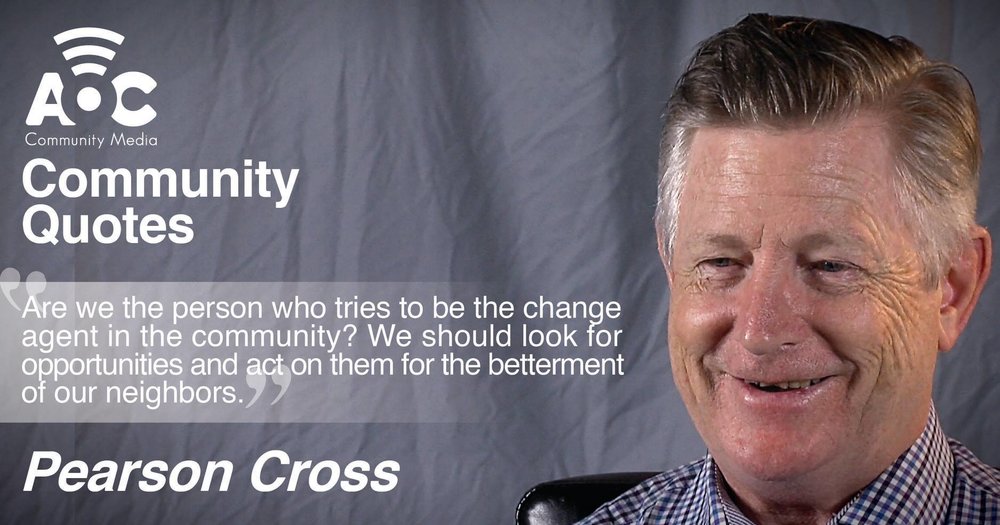
Dr. Cross is co-authoring The Party is Over: Louisiana Politics in the 21st Century with Dr. Christie Maloyed of UL – Lafayette, which is under advance contract with LSU press and should be published in early 2021. The book has fourteen chapters written by different political experts in Louisiana hailing from institutions such as Tulane, LSU, Southern, UL – Lafayette, UL – Monroe, and non-government organizations, where they focus on issues impacting Louisiana. The premise of the book is that the things that used to make Louisiana unique or sui generis are gradually fading away. Term limits play a large part in this as we have a turnover of the old guard and people are no longer putting up with corruption or slush funds for lawmakers. However, whereas the Legislature used to be non-partisan and elected officials would work with one another, today’s lawmakers draw lines into the sand on the basis of Democrat or Republican. The result is that Louisiana is now very similar to all the other Southern states and no longer immune to national trends.

Dr. Pearson Cross is co-authoring The Party is Over: Louisiana Politics in the 21st Century with Dr. Christie Maloyed of UL – Lafayette, which is under advance contract with LSU press and should be published in early 2021.
The interview was capped with a look back at the governing style of the late Governor Mike Foster who, while conservative, was non-partisan when dealing with the Legislature. With a track record of establishing TOPS, the Louisiana Workers’ Compensation Corporation, founding of the Louisiana Community and Technical College System, and much more, the ‘good ole days’ seem far, far away.
We thank Dr. Pearson Cross for his insight into the political scene and for his service to our community. You can check out his radio show and podcast, Bayou to Beltway, here.
